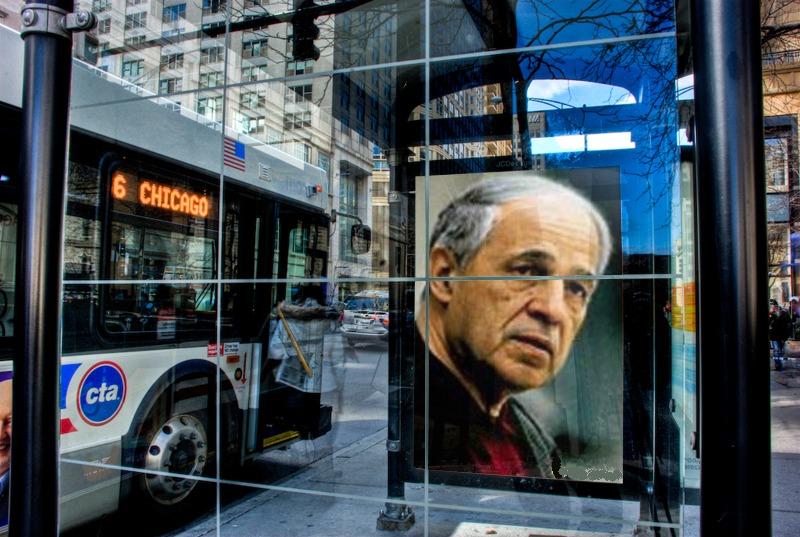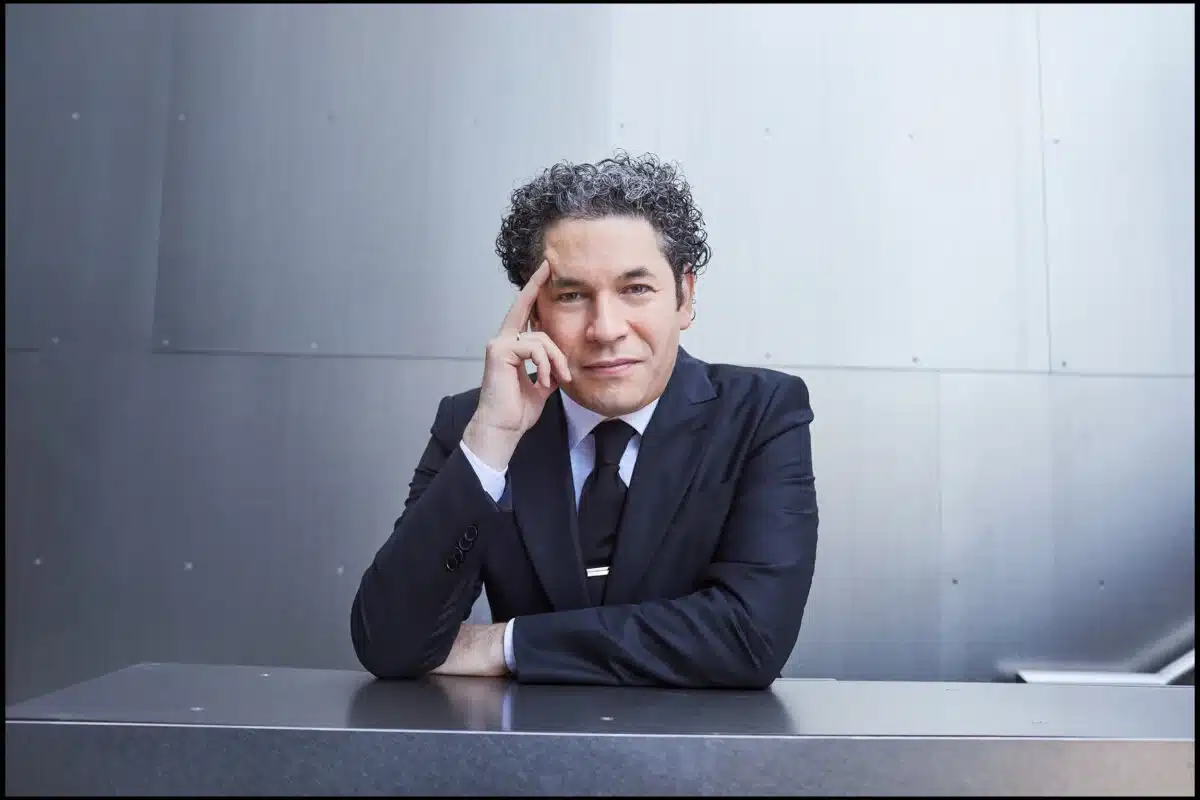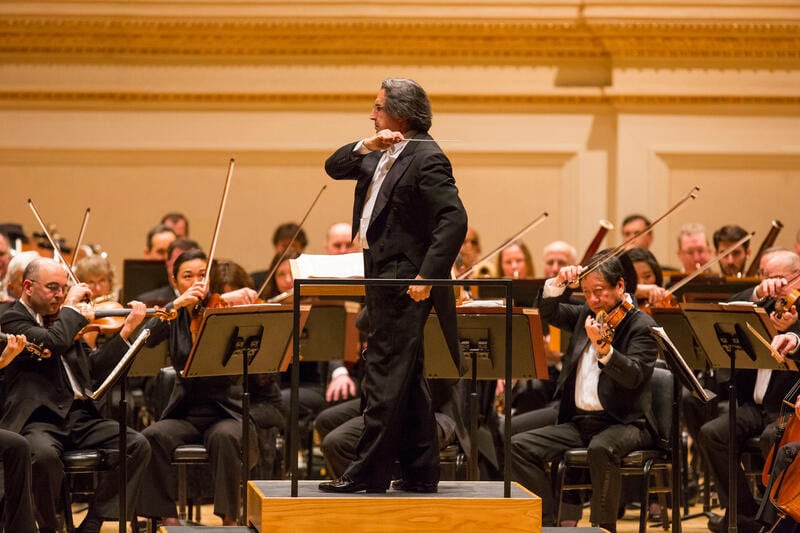Chicago strike: Both sides are now losing
mainLarry Johnson has written a perceptive, painful up-to-the minute account of the Chicago Symphony strike. He seems to have struck a chord with this sentence:
‘… slowly, quietly, yet inexorably both the institution and the musicians appear to be losing material support and hard-won loyalty from the very people that matter most—their long-time subscribers and loyal audience members.’
Read the full article here.







Not a great situation, but other orchestras have bounced back from protracted strikes. I think we’ve all hammered the salient points over and over.
One salient point Johnson makes is that the CSO plays less and less in Chicago, under Muti, it’s always touring.
The result is less of a hometown connection with the public, and in times of crisis, greater hometown antipathy and indifference.
Muti thinks that his once-per-year free concert and playing he piano in juvenile jails (don’t ask, everyone has fetishes) is connecting with Chicago, yet he spends weeks on end, up to a month, touring Europe, Asia, Florida.
Muti doesn’t really have any special affinity for Chicago, he goes through the motions, but mainly he uses the Chicago Symphony as a personal showcase on the international stage, and the musicians are happy to go along.
But he price to pay is heavy. Proof: 99% of financial support to the striking musicians have come from out-of-town orchestras, not Chicagoans.
The link leads to a very pro-management article.
I’ve said all along that this long strike will only be resolved if Muti, who has sat on the fence, takes an active role. But he seems not to be an Osmo.
A prolonged strike is good for neither side, nor for the city of Chicago.
What’s more important than the article — and probably more telling — is reading the comments that CSO audience members have posted below it.
Perhaps an alternative plan is necessary. It is hard to get any financial information for the CSO, so with this in mind, here are my proposals:
1) Maestro Muti takes a 25% cut in salary, saving about $500,000.00 annually which goes to the musician’s fund;
2) The City of Chicago agrees to put in $500,000 annually in to the pot;
3) The State of Illinois agrees to match with its own $500,000 annual grant;
4) The CSO agrees to give 2 concerts with all donations/proceeds from attendees that go directly to the musician’s pension fund.
5) Musicians of the orchestra agree to accept the last contract proposal made by management plus the additions above which will be made to their pension fund.
Has marijuana been legalized in Chicago? Because you are high as a kite, dude. You live in a la la land that is even farther away from reality than the la la land currently occupied by the CSO musicians.
Come back down to earth. Come back down.
You point #4 has been going on for years. Musicians have wondered where that money went. Possibly the pension was mismanaged on purpose, as a way to kill it off.
The city and state are in financial crisis, due in large part to mismanagement of their pension obligations. No help there.
Ha ha…you’re a funny guy.
The City of Chicago (which is broke) will put in $500K
The State of IL (which is broke) will put in $500K
However, instead of playing around Chicago for free, they should be using these concerts to raise funds for their pension if it is so important.
The real test is if the public will pay to attend these concerts.
It’s one thing to go for a free concert. It’s another thing when having to choose between a movie or a concert or staying at home and watching Netflix.
They’re broke? Not for the Bulls (who have a tax exemption). Not for the Cubs. Not for the White Sox. Not for the Bears ($632 million public funded renovation to Soldiers Field).
They could always add something like an addition to the hotel room tax that goes to art.
They’re not broke. They’re just spending their money in other ways (usually the wrong ways).
From the Chicago Tribune (not a leftist paper): “The bottom line is that the new Chicago Bears stadium will get one of the largest government contributions in the history of professional sports, a fact obscured by a public-relations strategy that tried to divert attention from the public costs.” https://www.chicagotribune.com/csac-bt-020421soldierfieldgallerystory-story.html
You miss the point. It’s not the amount of funds in the pension plan, but management’s demand to remove the plan from defined benefit to defined contribution thereby placing the investment onus on the individual musician rather than on management.
Actually, the key is “who bears the risk”. The organisation is trying to overload the risk onto the musicians. [And, ultimately, onto the government.]
My proposal above makes demands of the maestro, the musicians and the city and state of Illinois. So it is an effort to reach a compromise through all giving up something.
Muti (he’s an opera loving Italian so maybe he would love this idea) leads the sacrifice and gets hailed as the hero of the day. He is immortalized locally and internationally for his sacrifice: the “man who saved the CSO”.
Daniel Barenboim, the prominent conductor who once led the CSO and who has voiced support for the musicians in this strike, gets to lend a hand too. He conducts at least one of the fund-raising concerts and he to gets hailed as a hero too (it’s all theater, in my opinion, for most conductors).
The musicians give in with big salary increases and pension funds strengthened. The management board states their proposals originally were deficient and agrees to wholeheartedly support the musicians.
Maybe the pension fund concert has to be annual?
I hear the San Francisco Symphony, New York Philharmonic, Pittsburgh Symphony, Philadelphia Orchestra, Milwaukee Symphony, L.A. Philharmonic, Houston Symphony, Dallas Symphony, Boston Symphony, London Symphony, Berlin Philharmonic, Frankfurt Symphony, etc. on the radio and on the internet all the time. I do not need the CSO, whether live or otherwise. As far as I am concerned, they can continue their strike for seventy years.
You can even hear the CSO on WFMT on SUN evenings while they are on strike.
And yes with the Internet and HD broadcasts from Berlin and the MET, if you are into classical music, there is a good deal of substitutes for a live concert.
You cannot only listen to classical music on the internet, you can create yourself a peer in name on the Internet, Sir David.
And what about those formerly great London orchestras that you noted paying a pittance and then getting studio recordings (something now done in Budapest)? Sorry, in the long run money counts. That’s why it’s important in Chicago.
Nice of you to keep your radio and internet device turned on. When was the last time you actually paid for a ticket to a LIVE concert which helps to support an orchestra ?
Maybe orchestras shouldn’t make their concerts free online if they want more people to purchase tickets?
Hardly ever anymore. And I’m quite happy
Over my life time I’ve attended many more live concerts than you I am sure so get off your soap box
I listen to classical music at least two or three hours every day. And it’s free
I don’t have to see and hear a live concert. I’m quite content with what modern technology has gifted me in my older years
So run off and pay your $200 for an upper balcony ticket if you enjoy the real life experience. I’m quite happy with free
I’m looking forward to the start of the Grant Park orchestra season, which is free (yay), we can drink wine and get buzzed throughout, and the orchestra and conductor Carlos Kalmar (plus various guest conductors) are excellent.
As far as this ‘best in the world, or ‘best in the U.S.’ business goes, it seems the players might be believing their own p.r. a bit too much. Everyone needs to be careful not to believe their own p.r. too much, regardless of how talented or how smart one might be. It’s like rolling in catnip. In music – as in sports – many of us like to say that you’re only as a good as the last time you played. It helps to keep one ‘hungry’ and humble.
Many CSO musicians live in a bubble. I once heard an interview with one of the trombonists and he was talking about subbing in the BSO. He was saying something about how that brass section was so hard to play in, etc. The BSO has a better brass section than the CSO these days.
Don’t confuse fact with opinion. His impression was it was hard to play with the BSO brass. You don’t have basis to dispute his impression. If you think the BSO brass is better than the CSO’s, that’s your right.
Fire them all, they don’t contribute anything of value to the US anymore. Symphony orchestras are dying all across the US, and we are losing Music Education funding. It is more than obvious, people are fed up with dealing with the mentally retarded field of Classical Musicians. The best they can come up with is insulting the audience intelligence with 20th Century Music, and the pinnacle of human stupidity: 4’33”
Derpa, Derpa, Derpa…
I love John Cage and Arnold Schoenberg
Derpa, Derpa, Derpa…
Losers, every one of the members of the CSO.
With one exception, American orchestras in their present form are unsustainable without massive gifts from donors to bridge the gap between operating revenue and actual expenses (short and long term). The Los Angeles Philharmonic is the only one to actually make money on operations and it’s because of their incredible cash cow summer home the Hollywood Bowl. No one has anything close. That’s why they have the highest pay, recruit the best musicians, have the most in demand conductor, and have never been close to a strike.
I often feel this way about orchestra strikes. There is often a fight and posturing to win the initial PR battle between management and the musicians, but you are always flirting with financial disaster. Because whether you think management are incompetent slavedrivers, or you think the musicians are entitled… it doesn’t matter. You leave thinking that something is rotten in Denmark with the organization as a whole and maybe it’s not such a good idea to hand your money over to a group that can’t properly manage that gift.
American orchestras exist at the goodwill of the public, so PR of the organization and brand as a whole is everything, much more than traditional companies. I’d expect 60% of the CSO’s budget comes from donors if they are at the industry average. And in this day and age, you are competing for the same philanthropic donations as cancer research or inner-city after school programs. If things appear dysfunctional from the outside looking in (no matter whose side you would take in the strike), that might be enough to nudge you to give to some other organization or charity in Chicago, which will only make whatever financial pressures might have led to this strike all the more difficult. I would be fascinated to hear if contributed donations went down in Philadelphia after the walk out on the gala, which was in front of the well heeled folk who might be most important to that budget.
I’m quite sympathetic to the CSO players’ desire to keep a defined-benefit pension plan, but I am concerned that the players have forgotten that they are not just employees; they are custodians of their institution. Indeed they ARE the institution. And a strike that weakens support for it harms them.